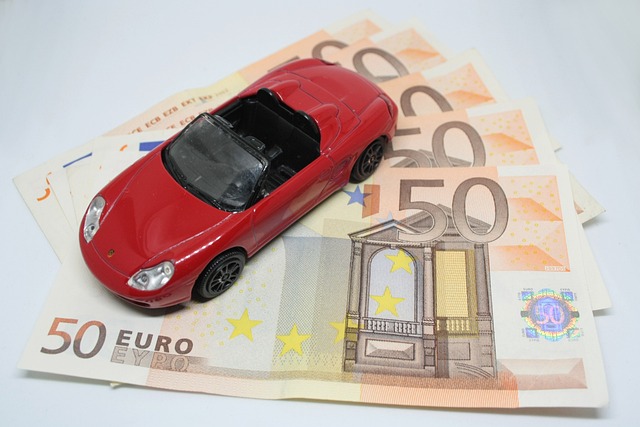Owning a Car in the Netherlands: Costs and Alternatives

The Netherlands is known for its excellent public transportation system, cycling culture, and compact urban areas, which often make car ownership optional rather than essential. However, owning a car can still be convenient or necessary depending on your lifestyle, location, and needs. Before deciding to purchase a vehicle, it’s important to understand the costs involved and explore alternatives that might suit your situation better. This guide breaks down the expenses of owning a car in the Netherlands and highlights alternative transportation options.
1. Costs of Owning a Car in the Netherlands
Owning a car comes with significant upfront and ongoing expenses. Here’s a detailed breakdown:
A. Purchase Price
- New Cars:
The average cost of a new car ranges from €20,000 to €50,000+, depending on the make and model. - Used Cars:
A second-hand car typically costs between €5,000 and €20,000, depending on age, mileage, and condition. - Electric Vehicles (EVs):
EVs are increasingly popular due to government incentives. Prices start at around €30,000 but can rise significantly for luxury models.
B. Registration and Taxes
- BPM (Belasting Personenauto en Motorrijwielen):
A one-time purchase tax based on the car’s CO₂ emissions and list price. For example:- Low-emission cars: ~€0–€1,000.
- Mid-range emissions: ~€1,000–€5,000.
- High-emission cars: €10,000+.
- Road Tax (Motorrijtuigenbelasting):
An annual fee based on weight and emissions. Costs range from €100–€1,000+ per year.
C. Insurance
Car insurance is mandatory in the Netherlands, and premiums vary based on factors like age, driving history, and vehicle type:
- Third-Party Liability (WA): Minimum coverage required by law. Costs €300–€600 annually.
- Comprehensive Coverage (All Risk): Covers damage to your own car. Costs €800–€1,500+ annually.
- Additional Options: Breakdown assistance (
€50–€150/year) and legal protection (€20–€50/year).
D. Fuel Costs
Fuel prices in the Netherlands are among the highest in Europe due to taxes:
- Diesel: ~€2.00–€2.30 per liter.
- Unleaded gasoline (Euro 95): ~€2.10–€2.40 per liter.
For electric vehicles, charging costs depend on whether you use home chargers or public stations:
- Home charging: ~€0.20–€0.30 per kWh.
- Public charging: ~€0.40–€0.70 per kWh.
E. Maintenance
Regular maintenance is essential to keep your car running smoothly:
- Oil changes: €50–€150 every 10,000–15,000 km.
- Tire replacement: €50–€150 per tire.
- Annual inspection (APK ): Mandatory after four years; costs €50–€100.
F. Parking
Parking fees vary widely by city:
- Amsterdam: €4–€7 per hour in central areas; monthly permits cost €150–€300+.
- Smaller towns: Free or low-cost parking outside city centers.
G. Miscellaneous Costs
- Road tolls: Rare in the Netherlands but common when traveling abroad.
- Depreciation: Cars lose value over time, especially after the first few years.
2. Alternatives to Owning a Car
Given the high costs of car ownership, many people in the Netherlands opt for alternative modes of transportation. Here are some popular options:
A. Cycling
- Why Choose Cycling?
The Netherlands is famous for its bike-friendly infrastructure, with dedicated cycle paths and ample parking facilities. Cycling is affordable, eco-friendly, and efficient for short to medium distances. - Costs:
- New bike: €300–€1,000+ (depending on quality).
- Maintenance: €50–€150 annually.
- Tips: Invest in a sturdy lock to prevent theft, as bike theft is common.
B. Public Transportation
- Trains: Operated by NS (Nederlandse Spoorwegen), trains connect cities quickly and reliably.
- Single ticket: ~€10–€30 (depending on distance).
- Discount cards: OV-chipkaart offers reduced fares for frequent travelers.
- Buses, Trams, and Metro: Managed by regional operators like GVB (Amsterdam) and RET (Rotterdam).
- Single ride: ~€2–€4.
- Monthly pass: ~€100–€150.
C. Car-Sharing Services
- Companies like Greenwheels , MyWheels , and SnappCar allow users to rent cars by the hour or day without the commitment of ownership.
- Costs: ~€5–€15 per hour + fuel/charging fees.
D. Ride-Hailing Apps
- Platforms like Uber and Bolt operate in major cities, offering convenient rides for occasional trips.
- Costs: Comparable to taxi fares (~€10–€30 per trip).
E. Electric Scooters and Mopeds
- Shared e-scooter services like Felyx and Check are available in urban areas.
- Cost: ~€0.30–€0.40 per minute.
- Buying a moped: €1,000–€3,000 (plus registration and insurance).
F. Walking
- Many Dutch cities are pedestrian-friendly, making walking a viable option for short commutes.
3. When Is Owning a Car Worth It?
While alternatives abound, owning a car may be worthwhile if:
- You live in a rural area with limited public transport.
- Your job requires frequent travel outside cities.
- You need flexibility for family activities or weekend getaways.
- You prefer the convenience of having your own vehicle.
4. Tips to Reduce Car Ownership Costs
If you decide to buy a car, consider these strategies to minimize expenses:
- Choose an Electric or Hybrid Vehicle: Benefit from lower road taxes, free parking in some cities, and reduced charging costs.
- Shop Around for Insurance: Compare quotes from multiple providers to find the best deal.
- Perform Regular Maintenance: Preventive care reduces the likelihood of costly repairs.
- Use Public Transport for Commuting: Minimize daily wear and tear by relying on trains or buses.
- Carpool: Share commuting costs with colleagues or neighbors.


